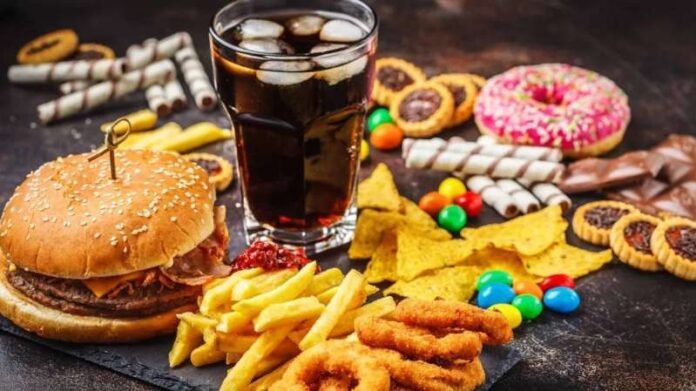The Gamma Open Network magazine published the study in which the T. H. Chan School of Public Health at Harvard University analyzed the food choices and mental health of more than 31,000 women between the ages of 42 and 62 years.
Ultra-processed foods produced using industrial techniques include: juice, chocolate, soft drinks, ice cream, packaged soup, French fries and frozen meals, reports Al-Rai daily.
During the study, ultra-processed foods were grouped into nine categories: foods made from ultra-processed grains, sweet snacks, ready-to-eat meals, fats and sauces, ultra-processed dairy products, savory snacks, processed meats, beverages, and artificial sweeteners.
Nutritionist Tanya Freirich said: “Ultra-processed foods are those that contain many preservatives and stabilizers, in addition to artificial colors and flavours.”
She continued: “They are generally the types of foods that can be stored on a shelf for years to come. Ultra-processed foods include things like potato chips, sweets, frozen dinners, and soft drinks.”
The researchers adjusted for factors that can affect the risk of depression such as age, body mass index, physical activity, smoking, sleep quality, chronic pain, alcohol consumption, income, and any existing medical conditions.
After analyzing the results, the researchers found that people who consumed higher amounts of ultra-processed foods, especially artificial sweeteners, and artificially sweetened beverages were more susceptible to depression.
They hypothesized that one possible reason is that artificial sweeteners cause chemical changes in the brain that can lead to the development of depression.
“Many studies have documented the association between certain food additives and cancer, hormonal changes, weight gain, and our mental health,” Frerichs said. “With that in mind, it is not surprising to me that there may be a link between ultra-processed foods and depression.”
The researchers noted that although the study’s sample size was large, the follow-up rate was high, and the nutritional assessment tools were advanced, there were some limitations.
“More variation in sample size may reveal differences across races and ethnicities in the association between consumption of processed foods and depression,” Freirich noted.























